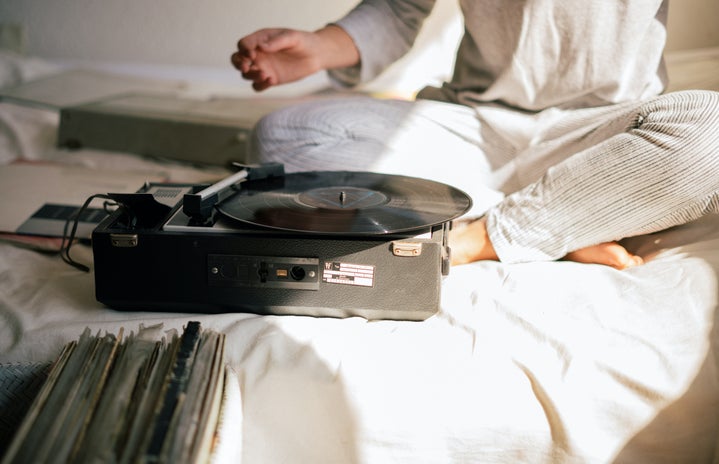Although hip-hop culture originates from African American and Latino neighborhoods in the Bronx in the ’80s and ’90s, the genre has been expanding over the years. Now, hip-hop is an international cultural phenomenon. With the genre’s increasing popularity, new artists from non-Hispanic and non-African American roots began to make a name for themselves in the industry. For example, artists like Rich Brian and Dumbfoundead, under the label Asian American label 88rising, have helped bring Asian and Asian American representation to the hip-hop industry.
However, 88rising is still a relatively new record label; its CEO Sean Miyashiro founded the label only six years ago. Before 88rising, an underground network of Asian American rappers existed who have been trailblazers in the industry for years. One prominent artist is Filipina American and spoken-word rapper Ruby Ibarra.
Who is Ruby Ibarra?
Born in Tacloban City in the Philippines, Ibarra moved to San Lorenzo, California, when she was 4 years old. She brought her mother’s cassette tape Yo! — by Filipino rapper Francis Magalona or FrancisM — with her across the Pacific Ocean. Ibarra attests that artists like Magalona, Wu-tang Clan, Tupac and Lauryn Hill helped serve as a blueprint for her music.
Raised in the Bay Area, she began rapping at 13 years old, writing poetry and rhymes. As a result, she learned how to produce music and eventually began performing at colleges and other local venues.
Under her label Beatrock Music, she released her autobiographical debut album Circa91 in October 2017, naming it for the year she and her family emigrated to the United States. Throughout the album, she spits verses in a combination of English, Tagalog and Waray, an Eastern Visayan dialect, while simultaneously channeling her raw emotions about the issues many Filipino Americans face growing up in the United States. Every song on the album is a symbol of her life, from documenting the struggles of trying to fit in in two cultures to discussing crucial topics like colorism and the resilience of Filipina women.
Her song “Brown Out,” the first track in the album, perfectly encompasses all three discussions. It starts with the sound of children playing, but it is interrupted by their mom telling them to come inside. Although, this is common for most families, the phrase that holds the most significance, even if you cannot fully understand what she is saying due to the mix of English, Tagalog and Waray, are the words, “You and your sister will get dark; you’ll get ugly if you’re dark.”
A common saying in most Filipino households is the phrase, “Amoy araw ka,” which roughly translates to “You smell like the sun.” In English, the phrase seems like nonsense. How can you smell like the sun? Instead, the phrase insinuates you smell like the outdoors and like you have been outside in the sun for too long. In Filipino culture, “smelling like the sun” and being outdoors ties together with the idea you are a laborer who works outside. As a result, many people, especially Filipino mothers, insist their kids stay indoors where they cannot be touched by the sun’s rays.
“Brown Out” perfectly establishes the recurring theme of the entire album, juggling life between two cultures. In the first verse, she starts by saying, “They teach me to erase that brown, subconsciously I lose my crown…,” referring to the pressure to assimilate both physically and metaphorically to mainstream white America. The song continues to play out, constantly alluding to this mirror metaphor that does not accurately represent her. Instead, it represents what others want her to be. Then she briefly mentions her mother on “9-5, then switch to an 8-1,” referring to the tireless work her single mom does to support Ibarra and her family in this entirely foreign country and demonstrating her resilience and strength.
Ibarra further discusses these topics in more depth in the album’s later songs, like “Someday,” which NPR describes as a “love letter to her immigrant mother” in a headline and “Us,” which beautifully highlights the diverse groups of Philippine women and our culture. Although there are not enough words to describe the artistry and raw emotion Ibarra encapsulates in each rhyme, Circa91 is definitely an album you should dissect and experience from the first verse to its last rhyme.
Outside of music, Ibarra also works as a scientist at a Bay Area biotech company. While working on her music career, she studied biochemistry and molecular biology at the University of California at Davis. With the recent COVID-19 pandemic, she works to ensure quality control on test kits and researches the possibility of an additional vaccine.
Outside of her music and science career, Ibarra is also an activist for social justice, firmly believing in using her platform to raise awareness for causes, such as spreading awareness about the severity of the pandemic and supporting the Black Lives Matter movement.
Furthermore, along with Dr. Allyson Tintiango-Cubales, an ethnic studies professor at San Francisco State University, Ibarra helped begin the Pinays Rising Scholarship in 2018, which promotes higher education among Filipinx. To apply, they do not determine the awardees based on statistics like GPA or test scores, nor do they prefer specific fields of study. Instead, they look for young Filipinx students who are determined to give back to their communities. In 2020, they awarded the scholarship to 33 recipients throughout the United States, raising over $16,000 to help fund their education.
Using her platform from her scientific to musical career, Ibarra continues to serve as an important role model for not just Filipino American and Asian American women, but also all women because she is a strong, resilient force. March is Women’s History Month, so I present to you a woman whose name should go down in history: Ruby Ibarra.



